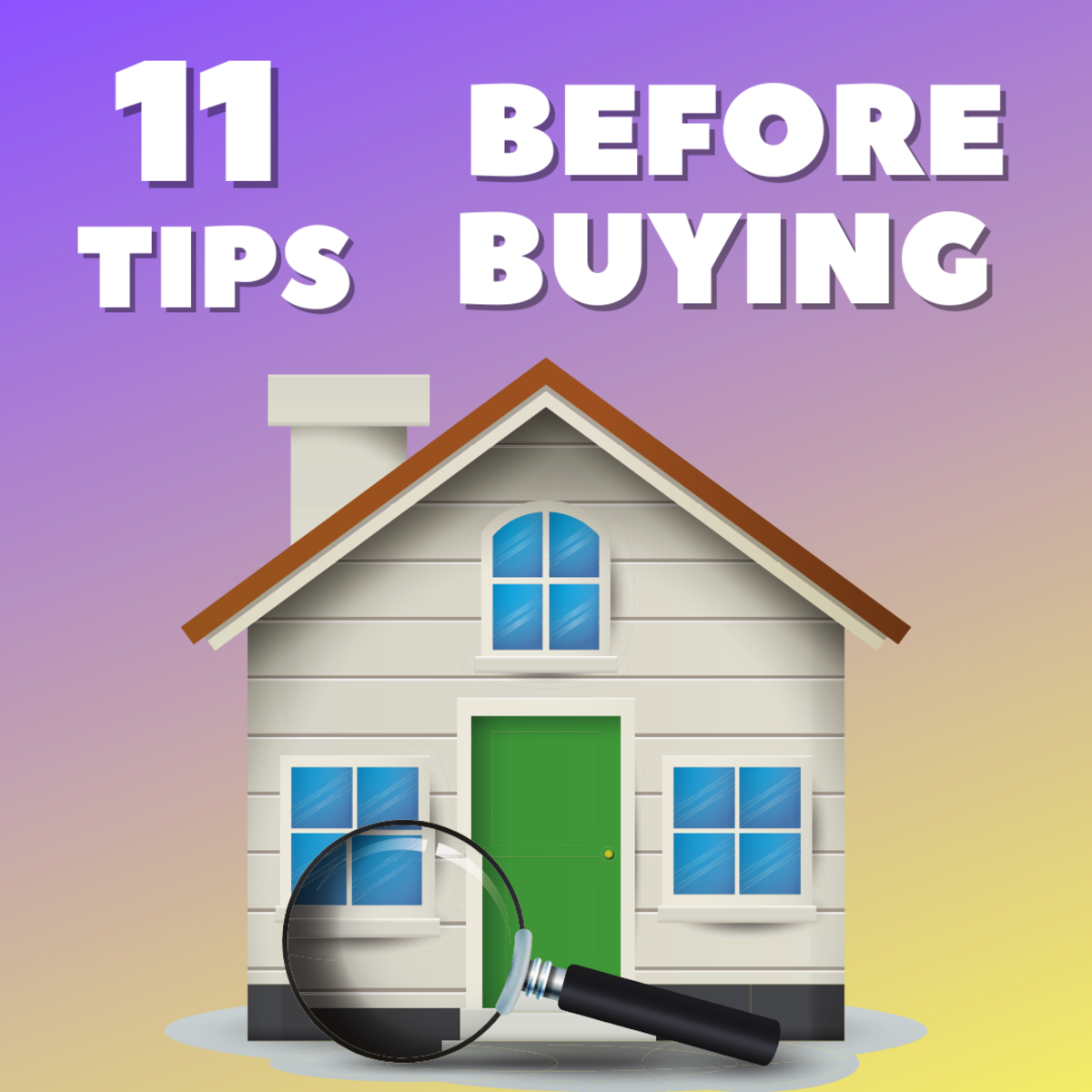Steps in the Home Buying Process
Buying a House Needn't Be So Confusing
Ah, to own your own home. It's not only the American Dream, but the dream of people throughout the world. A house tends to be the largest purchase that the vast majority of people will make (excluding, of course, people like Donald Trump). Yet how does one go about such a process? It seems to be a maze that boggles the mind, without proper knowledge. Yet, the process of home purchase is not so complex.
Now is a great time to buy a home. In fact, except for when home loan prices are highly inflated, when isn't? Despite the effects of the Great Recession which began in 2007, and despite the ripples that are still being felt, home prices are relatively low and if you are solvent or simply have a good, steady job, chances are, you can get your own home with a bit of buckling down and some knowledge. To this end, the following is a basic outline of what it takes to get into your own place.
3 Basic Steps and sub-steps
1. Before Purchasing
A. First, you must have your credit checked. This is as, if you have poor credit, finding a lender to give you money for a house will be quite difficult. Even if you have been great at paying your bills, you may sometimes have adverse accounts opened against you on your credit rating (even if it's not really you who has accrued a poor credit score, but someone with the same name as you; or there may simply be a mistake on your credit report). Getting a jump on fixing any blemishes to your credit rating should happen sooner than later. (Note that there are 3 credit rating companies, so even if you have a perfect credit rating with 2 of the companies, a poor rating on the third company's report could hamper your plans.)
B. Garner pre-approval for a home loan, along with a pre-approved letter from your lender. This will open many doors for you, and quickly. This would probably best come from your own bank (or better still, your credit union). If you don't already have an account opened, or haven't yet met with the financial officer at your banking institution, this would be a good time to do so).
C. Calculate the price range that you can realistically pay for a home.
D. Determine where you'd like to live, and exactly which features you'd like your home to have. For instance, is a garage an absolute necessity? A yard? Is it near to a park, or the freeway that you drive to work? Do you need a swimming pool or sauna? Are hardwood floors a necessity, versus mere luxury for you? Finally, what is the bare minimum that you are willing to settle for?
2. Finding the Home of your Dreams and Desire
A. Find a realtor that you are comfortable with, and who is willing to find you your dream house. Is he or she reputable? Experienced? Does he or she have satisfied customers willing to tell you about their great experiences with your potential realtor? These are questions to ask your potential realtors.
B. Actually look for the home of your choosing. First, determine the neighborhood(s) that you desire to live in. Then, driving slowly down each street, take note of the homes for sale and when you can view these houses. Never decide to buy the first house you like. Shop around, get a feel for the different homes, streets, shops, and people in that area. This will help you to be more savvy about what the neighborhood of your choice is really like, and what prices you think are fair for the homes you peruse.
C. When you're satisfied with a specific house, make an offer (or counter-offer, if others also have their eyes on your future home). As is the rule, always bid lower than you're willing to pay, never the absolute hightest amount you can afford. Give yourself some "wiggle" room to negotiate.
D. When both the purchaser (you) and the seller agree to a price, a Residential Purchase Agreement is made and signed.
E. Place a deposit on the house to show that you are serious about purchasing. This is typically between 1% and 3% of the purchase price, but may even stray a bit higher.
F. Begin the loan process by contacting your banking institution and entering its loan program. You'll want to give your bank or credit union a copy of the purchase agreement, and will probably have to pay an application fee, generally between $300 and $500.
3. Beginning Escrow
A. The person selling the home will have an Escrow Company. This is a neutral third party that aids in the closing of the deal.
B. The seller will also select a Title Company which will offer title insurance, which ensures that you get ownership.
C. You will compleste a Statement of Information.
D. You or the seller will order a Termite Report. This will allow you to know if there is any termite damage, and if so, the extent of it. Make sure that this gets done!
E. Ensure that a home inspection is made, as this will ensure that the structure of the house is sound. This includes the unseen aspects of the house, such as the foundation. Should the home be unsound, it would be a very bad investment.
F. At this point, your loan is being processed. You'll simply want to communicate with your lender for final approval.
4. Final Approval of Your Home Loan
A. In this step, you'll want to ensure that you've satisfied all of the conditions that your lender has of you.
B. The Realtor will schedule an appraisal of the house (this is relative to the homes similar to yours in your new neighborhood).
C. Now you will deposit the remainder of your down payment into escrow.
D. Once you've paid escrow the balance of your down payment, get homeowner's insurance. Don't procrastinate on this one, lest you lose your home in an unexpected catastrophe and have no recourse. (Often, having homeowner's insurance will be a stipulation of your mortgage agreement.)
5. The Final Closing of the Loan
A. Get a home warranty. This is further insurance to protect your home.
B. Sign the loan and any other paperwork part of escrow.
C. Your loan is now approved. You've got money for your home!
D. The Deed of Trust and the Grant Deed are officially recorded with your county.
E. Pick up your house keys from escrow.
The time frame on purchasing a house varies. The first 2 steps could take between 2 weeks and 2 months, depending on how diligent you are, and often, how lucky you are at finding the home of your choice. Escrow tends to take a month in itself, so you will usually be looking at a minimum of 6 weeks to getting in a home, though every situation is different. Soon, you will be on your way to being in your very own home. Congratulations!








